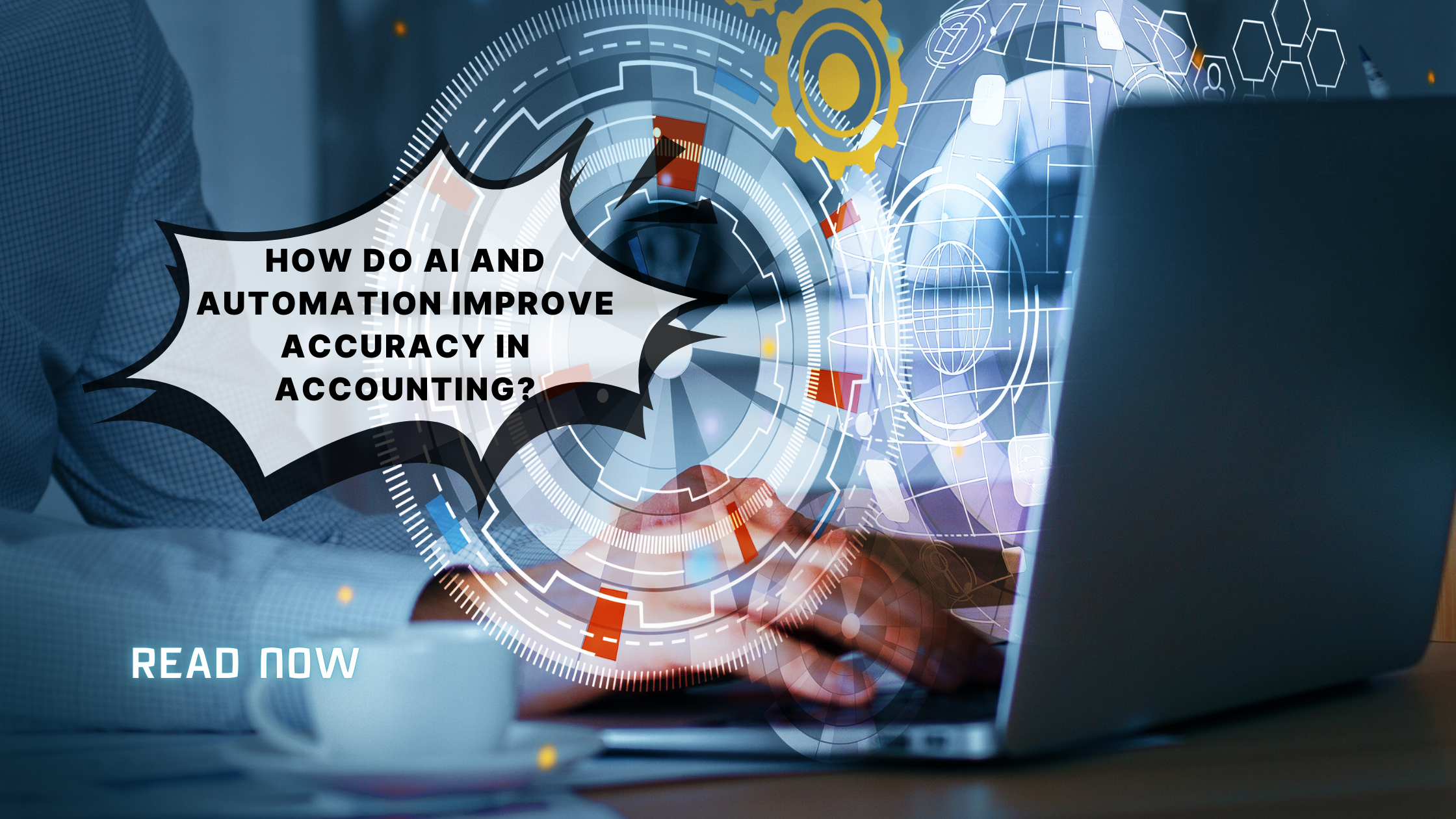Accounting is at the heart of every business, ensuring that financial records are accurate, compliant, and insightful. However, traditional accounting processes have often been labor-intensive and prone to human error. With the advent of Artificial Intelligence (AI) and automation, the landscape of accounting has transformed, ushering in a new era of accuracy, efficiency, and innovation.
In this article, we’ll explore how AI and automation improve accuracy in accounting and why these technologies are essential for modern businesses.
1. Eliminating Human Errors in Data Entry
Manual data entry has historically been one of the most error-prone aspects of accounting. Transposing numbers, entering incorrect amounts, or misclassifying transactions can have significant repercussions, from inaccurate financial reporting to tax compliance issues.
AI-powered tools, combined with automation, minimize these errors by:
- Automatically extracting data from invoices, receipts, and bank statements.
- Classifying transactions accurately using predefined rules and machine learning algorithms.
- Flagging anomalies for human review, ensuring potential issues are addressed before they escalate.
For example, AI systems can scan thousands of invoices and accurately record them in the appropriate accounts, reducing the risk of manual input mistakes.
2. Enhancing Reconciliation Processes
Bank reconciliation—matching transactions in financial records with those in bank statements—is a critical but tedious task. Errors in reconciliation can lead to discrepancies in cash flow reports and financial statements.
AI and automation streamline reconciliation by:
- Automatically matching transactions with bank feeds.
- Identifying discrepancies and suggesting corrections.
- Reducing the time spent on manual checks and ensuring greater consistency in records.
This not only saves time but also ensures businesses have an accurate view of their financial position.
3. Real-Time Financial Insights
AI doesn’t just automate tasks; it also provides real-time analysis and insights. Businesses no longer have to rely on outdated reports or incomplete data to make decisions.
AI improves accuracy in financial reporting by:
- Continuously analyzing data from various sources.
- Providing real-time updates on key financial metrics, such as revenue, expenses, and profitability.
- Generating detailed reports with actionable insights, enabling better decision-making.
For instance, AI tools can identify trends, forecast future revenue, and highlight areas where expenses can be optimized.
4. Reducing Fraud and Ensuring Compliance
Fraud and non-compliance are major risks in accounting. Mismanagement of funds, unauthorized transactions, or errors in tax filings can result in hefty fines and reputational damage.
AI and automation bolster accuracy and security by:
- Detecting fraudulent activities through pattern recognition. For example, AI can identify unusual spending patterns or unauthorized access to accounts.
- Ensuring tax compliance by automatically categorizing transactions and applying the correct tax rules.
- Keeping records audit-ready by maintaining comprehensive logs of financial activities.
With AI, businesses can stay compliant with evolving regulations and safeguard their financial integrity.
5. Improving Decision-Making with Predictive Analytics
Traditional accounting focuses on historical data, but AI leverages predictive analytics to enhance accuracy in decision-making. By analyzing large volumes of data, AI can provide forecasts and predictions that help businesses plan more effectively.
AI-powered accounting tools:
- Predict cash flow trends and highlight potential shortfalls.
- Provide accurate budgeting and forecasting models.
- Suggest strategies for optimizing financial performance based on historical and real-time data.
This forward-looking approach reduces the likelihood of errors in financial planning and ensures better preparedness for future challenges.
6. Streamlining Workflow Efficiency
In addition to improving accuracy, AI and automation streamline accounting workflows, allowing professionals to focus on higher-value tasks. By automating repetitive tasks, such as invoice processing, payroll management, and expense tracking, businesses achieve:
- Faster turnaround times for financial processes.
- Consistent results across all operations.
- Reduced employee burnout, leading to higher productivity and fewer mistakes.
This enhanced efficiency contributes to a more accurate and reliable accounting system overall.
Real-World Applications of AI in Accounting
Companies across industries are already reaping the benefits of AI and automation in accounting. Here are a few examples:
- Invoice Processing: AI tools like OCR (Optical Character Recognition) automate invoice scanning and data extraction, improving speed and accuracy.
- Expense Management: Platforms like Expensify use AI to classify expenses, ensuring compliance with company policies.
- Audit and Compliance: Tools like febi.ai AI use machine learning to identify high-risk transactions during audits.
These applications demonstrate how AI and automation are reshaping accounting practices globally.
Conclusion
AI and automation are revolutionizing accounting by improving accuracy, reducing errors, and enabling smarter decision-making. From automating data entry to enhancing fraud detection, these technologies ensure that financial records are reliable, compliant, and insightful.
For businesses aiming to stay competitive in a fast-paced world, adopting AI-driven accounting solutions is no longer optional—it’s a necessity. By embracing these innovations, organizations can not only streamline their operations but also build a foundation of trust and transparency in their financial processes.



